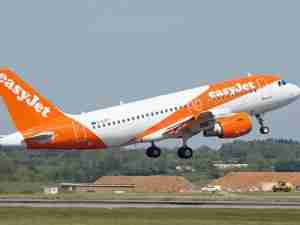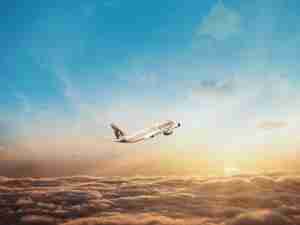Air France-KLM Summer Bookings Show `Healthy Increase,’ CEO Says
By: | Jul 09 2017 at 05:13 AM | Air Cargo
Air France-KLM Group signaled that a turnaround that began early this year is continuing as summer bookings rise and tourists from Asia and the U.S. return to France after staying away in 2016.
“The second quarter is good and the bookings for this summer are also quite positive compared to last year,” Jean-Marc Janaillac said in an interview at the Rencontres Economiques conference Aix-en-Provence, France late Saturday, calling the increase in bookings “healthy” while declining to give further details.
Air France-KLM is only just recovering from the collapse in travel that followed terrorist attacks on cities including Paris and Nice over the past two years. In the first quarter ticket-price declines were almost halted and demand for profitable business-class seats surged.
“We suffered from terrorist attacks, especially in 2016, but we have recovered this year. Visitors from the States and China and Japan are coming back,” Janaillac said. “This year we came back to the situation of two years ago and a bit more. We are quite hopeful that during the next year we are going to keep on increasing our visitors from overseas.”
Air France-KLM reports June traffic bookings Monday and publishes second-quarter results on July 28.
Janaillac, who took the helm of the airline a year ago, has a mandate to improve profit after years of losses and a series of costly strikes. The surge in traffic comes as the company is waiting for its main pilot union to give its opinion on a plan that includes the creation of Boost, a temporary name for a new, lower-cost long and medium-haul carrier. The SNPL union is consulting its members on the plan and will announce the result on July 17.
The remarks show just how much prospects have changed since December, when Janaillac gave a downbeat assessment, warning against the challenges of weak margins, rising fuel prices and high debt. Air France-KLM shares have more than doubled this year.
Even so the airline executive cautioned that the recovery doesn’t mean Air-France can forgo changes to its business model or the creation of Boost. “We need to have a structural effort for the long term,” he said. Passenger numbers at the Air France arm dropped 1.4 percent last year, and the group relied on Transavia and Dutch KLM for gains.
“Our goal is to find the ways of profitable growth,” he said. “Boost is a way to get back to 3 percent per year in long-haul growth, which is something we haven’t known for years.”










